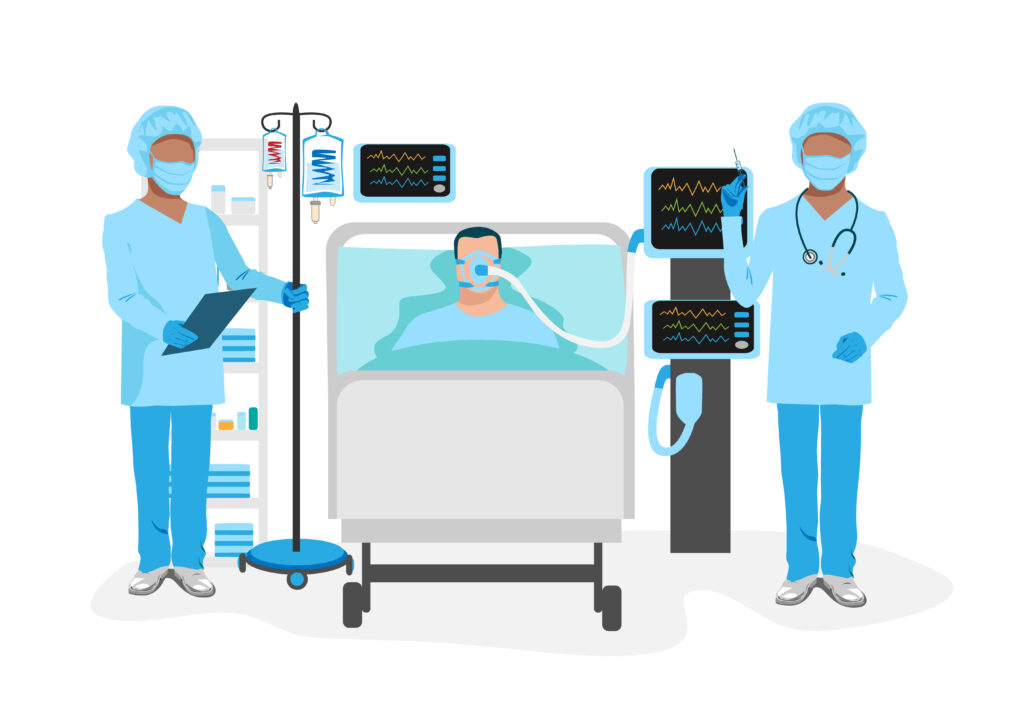In today’s rapidly transforming healthcare sector, efficiency and precision are vital. Hospital Management Systems (HMS) has evolved as the central nervous system of modern healthcare institutions, facilitating seamless operations, improving patient care, and increasing overall efficiency. In this comprehensive tutorial, we will delve further into the multifaceted world of Hospital Management Systems and their enormous impact on the healthcare sector. We (Digitalkings Limited) provide this types of Services, if you have any custom requirements, please don’t hesitate.
What is a Hospital Management System?
A Hospital Management System (HMS) is a complete software program that has been meticulously designed to manage and coordinate the numerous operations within a healthcare facility. An HMS integrates and streamlines essential administrative and clinical operations, including patient admissions, appointment scheduling, financial administration, and inventory control, allowing healthcare providers to spend more time and effort on providing excellent patient care. We have some suggestion like these which is informative, we hope you will like it.
The Crucial Components of a Hospital Management System
A strong hospital management system is made up of numerous interconnected modules, each of them is intended to address a specific segment of hospital operations:
-
- Patient Registration: By digitally recording essential patient data, medical histories, and insurance information, this module improves the patient admission procedure. It guarantees accurate and convenient access to patient records.
-
- Scheduling appointments: HMS improves appointment management, substantially decreasing wait times, and improving the whole interaction with patients.
-
- Billing and Invoicing: Automating billing processes makes it easier to create invoices, makes it easier to manage payments, and makes it possible to keep comprehensive records of financial activities.
-
- Electronic Health Records (EHRs): EHRs are databases that store patient health data and are housed within the HMS. They make thorough medical histories easily accessible to authorized healthcare specialists, encouraging more precise diagnoses and customized treatment options.
-
- Pharmacy and Inventory Management: By efficiently managing pharmaceuticals, medical supplies, and equipment, hospitals can guarantee that essential resources are always accessible.
-
- Laboratory and Diagnostic Management: Simplified procedures for scheduling, monitoring, and evaluating diagnostic tests lead to more accurate and timely patient diagnoses.
-
- Payroll and human resources: The HMS streamlines HR procedures by facilitating employee record-keeping, attendance control, and payroll processing.
-
- Financial Management: Healthcare organizations can use HMS data for budget management, financial analysis, and the search for cost-cutting options.

The Profound Advantages of Hospital Management System
Let’s explore some advantages hospital management systems bring to contemporary healthcare:
-
- Heightened Efficiency: By automating standard administrative operations, HMS minimizes the workload of paperwork and manual data input, allowing healthcare employees to devote more of their time to providing direct patient care.
-
- Elevated Accuracy: The switch to digital records and automated procedures reduces mistakes in patient data, medication management, and invoicing, which enhances patient safety and produces better financial results.
-
- Enhanced Patient Care: Electronic health records (EHRs) and immediate access to patient data enable healthcare professionals to make well-informed decisions, resulting in more accurate diagnoses and specialized treatment plans.
-
- Seamless Communication: Hospital management systems support inter-departmental communication by enabling medical professionals—including physicians, nurses, pharmacists, and office staff—to access and modify patient records in real-time, enhancing collaboration and coordination.
-
- Cost Optimization: HMS can help hospitals save a lot of money over time by maximizing resource allocation, cutting back on paperwork, and minimizing errors.
-
- Strong Security: Data security is crucial while discussing healthcare. Through strict access controls and encryption protocols, a well-built HMS guarantees the security of patient data.
-
- Patient Engagement: Some HMS solutions come with patient portals that let users access their medical records, make appointments, and interact with healthcare professionals online, improving patient engagement.
-
- Regulatory Compliance: Hospital management systems help healthcare institutions adhere to a variety of healthcare standards and regulations, assuring continuing compliance with ever-changing legal requirements.

Selecting the Ideal Hospital Management System
Any healthcare organization must make the appropriate HMS selection. The following are some crucial elements to take into account when making a decision:
-
- Scalability: As your institution expands, be sure the HMS is prepared to do the same.
-
- User-Friendly Interface: The system must have an intuitive layout that makes it easy for employees to pick it up and use it efficiently.
-
- Customization: Look for an HMS that can be modified to meet the specific requirements of your facility.
-
- Integration Capability: Confirm that the HMS can seamlessly integrate with existing systems and third-party applications.
-
- Vendor Reputation: Prioritize trustworthy vendors with a track record of providing great customer service and regular software upgrades.
The Future of Healthcare with Hospital Management System
Finally, a Hospital Management System is more than just software; it is the underlying underpinning of modern healthcare. It enables healthcare organizations to function with unparalleled efficiency, provide exceptional patient care, and remain competitive in a rapidly changing business. As technology advances, HMS will play an increasingly important role in determining the future of healthcare. This guarantees that patients receive the best possible treatment, while healthcare practitioners can streamline their processes and focus on their primary goal: saving lives.
Investing in a trustworthy Hospital Management System is no longer a choice in today’s healthcare market; it is a need for any institution that aims to provide great care and remain at the forefront of the industry.
The Evolving Landscape of Hospital Management Systems
Hospital Management Systems continue to adapt and develop as technology improves and healthcare demands change. Here are some fresh topics to keep an eye on:
-
- Integration of Telemedicine: HMS is progressively integrating telemedicine capabilities, opening up access to healthcare services and allowing for remote consultations.
-
- Artificial intelligence (AI): Within hospitals, AI-driven features help with diagnoses, anticipating patient requirements, and allocating resources in the most effective way.
-
- Blockchain for Data Security: To further safeguard the security and privacy of patient data, several HMS solutions are doing this research on blockchain technology.
-
- IoT Integration: The Internet of Things (IoT) is being used to better track assets, monitor patients remotely, and manage inventory.
-
- Mobile Applications: HMS-connected mobile applications are increasingly popular and allow healthcare professionals to utilize patient data and fulfill tasks while on mobile devices.
-
- Patient-Centric Features: Through features like patient portals and health-tracking apps, there is an increasing focus on patient interaction and empowerment.

HMS Implementation Best Practices
It’s necessary to adhere to best practices while adopting an HMS to enable a seamless transition and effective use:
-
- Thorough Needs Assessment: To start, implement an in-depth review of the unique needs and requirements of your facility. This will assist you in choosing an HMS that supports your objectives.
-
- personnel Training: Make sure your personnel receives adequate training so they are confident and competent in utilizing the HMS. This reduces interruptions and increases adoption.
-
- Data migration: Careful preparation and execution are necessary for moving current patient data to the new system. Maintain data integrity at all stages of the process.
-
- Change Management: Implementing change management tactics to handle any opposition to the new system and develop an adaptable culture.
-
- Testing & Quality Assurance: Thorough testing of the HMS is required before full-scale deployment in order to discover and fix any faults or defects.
-
- Collaboration with the HMS vendor: Be in constant contact with them for updates, support, and troubleshooting.
Real-World Success Stories
To illustrate the tangible impact of Hospital Management Systems, let’s explore a few real-world success stories:
-
- Case Study 1:
A medium-sized hospital in a remote region experienced various obstacles, including poor patient scheduling, billing mistakes, and difficulty obtaining patient information. They saw a large reduction in appointment wait times, a considerable reduction in billing mistakes, and enhanced departmental cooperation after installing a strong HMS. Patient satisfaction levels skyrocketed, and the hospital’s reputation in the community blossomed.
-
- Case 2:
A big metropolitan hospital was experiencing inventory management challenges, which resulted in crucial medicine and equipment shortages. They achieved real-time supply tracking after integrating an advanced HMS with inventory management capabilities, reducing waste and ensuring that essential items were always in stock. The hospital saved a lot of money as a result of this optimization.
The Role of HMS in Telemedicine
The popularity of telemedicine has altered the way healthcare is delivered, and Hospital Management Systems have played an important part in aiding this transformation. This is how HMS assists with telemedicine:
-
- Appointment Scheduling: HMS enables patients to easily book telemedicine appointments, ensuring that both healthcare practitioners and patients have everything they need for virtual consultations.
-
- EHR Integration: By integrating EHRs into the HMS, healthcare practitioners have rapid access to patients’ medical histories during telemedicine appointments, improving treatment quality.
-
- Billing and Documentation: To ensure correct billing and a complete medical history, HMS automates the billing procedures for telemedicine services. Documentation is also linked to patient records.
-
- Security: In telemedicine, data security is crucial. By using access restrictions and encryption, HMS complies with privacy laws to secure patient data.
Conclusion: The Path Forward
In the final analysis, hospital management systems have transformed from simple software tools to the crucial foundation of contemporary healthcare. They enable healthcare organizations to run with previously unheard-of efficiency, improve patient care, and negotiate the difficulties of a sector that is undergoing fast change.
HMS will continue to lead healthcare innovation as technology develops further. Healthcare organizations need to embrace the promise of hospital management systems, keep an eye on new trends, and make investments in the future of patient-centered, technology-driven healthcare if they want to succeed in this constantly changing environment.
Any institution that wants to provide exceptional care, stay at the forefront of the industry, and fulfill its mission of preserving and improving human life in the current healthcare environment must implement a reliable hospital management system.
Healthcare organizations may look forward to a future where they deliver higher-quality care, encourage patient engagement, lower costs, and take the lead in defining the next era of healthcare excellence by investing in a strong HMS and embracing technology developments.


Impactful and easy-to-understand informative article.
We want this type of articles more?✌️